92 products
- Red Wine
- Carignan
- Sustainable
- Dry
- Full Bodied
- 750ml
- 14.8% alc./vol
About the Winery
Bodegas Puiggròs
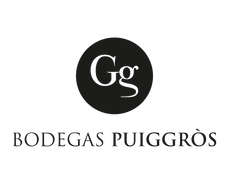
Since 1843, the Puiggros family has been producing wines from their own vines in the Odena region of Catalunya for the family and close friends. Over generations they had come to realize that their vineyards and techniques were something worth sharing with the world. A sincere dedication to the terroir in their zone and the indigenous varieties that grow there, allows them to constantly discover ways to unlock all of the magic that lies within their land.
Starting with conscious and clean farming in the vineyard, they hand-harvest only the best fruit for their production, and ferment each vineyard separately in varying vessels to accentuate what the vines have to show; some in stainless steel, and many in clay amphora of differing sizes. All the while seeing very little sulfur use (if any) until bottling. Puiggros is pushing the quality of northeastern Spain's wines forward, and doing so in a clean and unique way.
- Red Wine
- Pinot Noir
- Sustainable
- Dry
- Residual Sugar: 2.00 g/l
- Medium Bodied
- 750ml
- 13.50% alc./vol
About the Winery
Invivo

Invivo's journey began when two Kiwi friends, Rob and Tim, met in a London bar, determined to revolutionize the wine industry by creating a strong brand that defies tradition. Since 2008, Invivo has become a leading producer in New Zealand, winning over 600 medals and expanding operations across several countries. Through customer focus and innovation, including being one of the Southern Hemisphere's largest crowdfunded companies, Invivo has rapidly grown. Rejecting traditional winemaking norms, Invivo brings elegance from the old world to their original range, featuring Sauvignon Blanc, Pinot Gris, Chardonnay, Pinot Noir, and Rosé. Their collaborations with Graham Norton and Sarah Jessica Parker have further elevated their profile, embodying Invivo's vision of bringing people together to create greatness.
Press Reviews
Wine Orbit
94 Points - Sam Kim
Charming and complex, the seductively expressed bouquet shows sweet cherry, dried herb, clove and toasted almond characters with a hint of earthy mushroom nuance. The palate delivers excellent weight and soothing mouthfeel, wonderfully supported by velvety texture and beautifully infused tannins. At its best: now to 2030
- Red Wine
- Cinsault, Syrah
- Sustainable, Vegan-Friendly
- Dry
- Light Bodied
- 750ml
- 12.5% alc./vol
About the Winery
Pearce Family Wines

In the early 2000's Nicholas Pearce was exposed to the garagiste movement in Bordeaux and was particularly inspired by négociants like Jean Luc Thunevin (Saint Emilion), James Sichel (Margaux) and Nicolas Potel (Beaune) from Burgundy.
After returning home to Ontario and starting his own wine company, he has had a hand in making 10+ wines in two hemispheres, 3 countries and 5 different appellations since the 2013 vintage.
Pearce Predhomme

Pearce Predhomme is a collaboration of like-minded individuals from around the globe. Founded with a mission to build and import wines from our favourite appellations while offering an unequaled value/quality ratio for the sommeliers & wine buyers in Ontario. This is a project between Toronto Sommelier and entrepreneur Will Predhomme and Ontario wine importer Nicholas Pearce they have partnered with Radford Dale in South Africa and NorthWest Wine Co. in Oregon to create these special cuvées.
Press Reviews
Wine Align
90 points - Michael Godel
Missed the 2019 version of this wine somehow, but in any case the 2020 comes from a vintage whereby lockdowns at the beginning of the pandemic allowed the winemaking team to really focus on their wares. Koffieklip soils are the source, whole cluster ferments the operative and not much has really changed in the five year tenure of this wine. More fruit substance and lessened volatility in 2020, tart as ever however and truly a matter of this particular Stellenbosch terroir. You can get at this cinsault-syrah joint more than ever before, randomly, at will and wherever you are. Drink 2022-2025. Tasted March 2022.
90 points - David Lawrason
Pearce Predhomme Cinsault/Syrah 2018:
If you are fan of South African reds you will love this; if not you will be a step closer. It's a lively, engaging if idiosyncratic wine offering complexity, diversity and sheer drinkability. The nose is nicely lifted with a melange of wild blueberry, pomegranate fruit plus some meatiness, all kinds of herbality and Cape tar. It is medium bodied (only 12.5%) alcohol with crunchy acidity, a hint of sourness, fine soft tannin. Excellent length. Edgy but it works. Chill lightly. Tasted January 2021
Platters Guide
4.5 Stars - 90 points
- Red Wine
- Cabernet Sauvignon
- Dry
- Residual Sugar: 2.00 g/l
- Full Bodied
- 750ml
- 14.00% alc./vol
Press Reviews
James Suckling
91 Points
Cassis and blackberries on the nose with some grilled spices and olives. Medium to full body with tight tannins that provide a lot to chew on in the middle. Give it a year to soften and settle. Drink after 2023.
- Red Wine
- Corvina, Rondinella
- Sustainable, Vegan-Friendly
- Dry
- Full Bodied
- 750ml
- 15.5% alc./vol
About the Winery
Ca' del Monte

Ca del Monte is situated on the hillsides overlooking the village of Negrar, in the heart of Valpolicella. It has belonged to the same family for generations, and is now run by brothers Umberto and Giuseppe Zaconte. There’s nothing fancy about this place. The house and winery are modest - and are attached to a 17th century monastery.
The estate is approximately 50 acres, and its 15-65 year old vines lie on gentle slopes at 800-900 meters. They grow on four soils including clay, limestone, red volcanic soil with red stones, and “Toar,” a green volcanic soil. The vineyards of Ca Del Monte are planted with 20-40 year old vines of Corvina, Rodinella and Molinara grapes that are planted in poor soils that stress the vines and nurture the fruit. All of the farming is done traditionally and non-certified organic.
- Red Wine
- Primitivo
- Sustainable
- Dry
- Full Bodied
- 750ml
- 13.50% alc./vol
About the Winery
Cantine Paradiso
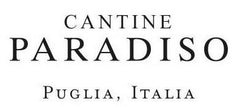
Cantine Paradiso is located is the South of Italy, in the region of Puglia. During the estate's 60-year history, the Paradiso family have always given the utmost importance to their close ties to Puglia's unique terroir, promoting the area's winemaking culture and constantly improving the quality of their production. The ongoing results confirm the choices made by three generations of down-to-earth vignerons closely bound to tradition and sensitive to innovation.
Press Reviews
Wine Align
90 points - Michael Godel
Cinematic and Mediterranean, Pugliese and really quite luminous so a bit other or different for primitivo of the place. Some may find it lean or light for the grape but in fact it's quite linear, lovely and elegant. With a slight chill and a simple red sauce in optimum season you could drink so much of this outdoors, overlooking water, all summer long. Drink 2020-2023. Tasted August 2020.
- Red Wine
- Malbec
- Vegan-Friendly
- Dry
- Medium Bodied
- 750ml
- 14.5% alc./vol
About the Winery
Bodega Marco Zunino
 The dream of 4 French partners in Argentina's Mendoza region can be found 200 kilometers from the district capital, in the South of the region, in the town of San Rafael. It's an oasis surrounded by large canyons and crossed by two rivers, Diamante and Atuel, vital for agriculture and tourism in the region.
The dream of 4 French partners in Argentina's Mendoza region can be found 200 kilometers from the district capital, in the South of the region, in the town of San Rafael. It's an oasis surrounded by large canyons and crossed by two rivers, Diamante and Atuel, vital for agriculture and tourism in the region.The arid climate, rugged landscape coupled with the plane trees located along the country roads and weeping willows bordering its rivers that makes the area reminiscent of the midi region in the South of France.
The thirty-hectare vineyard boasts an exceptional site and an idyllic regional climate for wine producing. The low rainfall, vineyard altitude (670m) and high temperature variations are key to the diversity and quality of San Rafael’s terroir and offers the ideal setting for a truly exceptional quality of grape.
Press Reviews
Wine Align
90 points - Sara d'Amato
A bright and cheery malbec made with finesse. The palate is cut and refreshed with a salty component, zesty acidity and mildly sinewy tannins. Sleek with notes of earth, new leather and blackberry. Impressively complex with a memorable finish. Drink now or hold until 2023. Tasted July 2020.
90 points - David Lawrason
This is a very generous, open knit, dense and just slightly sweet malbec with classic aromas of mulberry/raspberry, thyme, a touch of meatiness and oak vanillin. It is very smooth, almost slippery and dense with fine tannin and warm. The length is very good to excellent. Lots here for $20. Tasted June 2021
- Red Wine
- Mourvèdre / Monastrell, Syrah
- Natural, Organic, Vegan-Friendly
- Dry
- Full Bodied
- 750ml
- 13.5% alc./vol
About the Winery
Domaine Frédéric Brouca

Frédéric grew up in Normandy and met his Canadian wife Elaine at university in Lille, Northern France. They live a nomadic lifestyle (Canada, India, Singapore and USA) though Frédéric spends about half of his time in Faugères. Since early age, Frédéric had a calling for farming and the fierce desire to become a winegrower. After completing a Masters Degree in Finance in 2001, Frédéric went back to college for a Sommelier diploma and started his career as a Burgundy wine broker.
In late 2012, Frédéric and Elaine were fortunate to take over 25 acres of old vines in Faugères, organically farmed for twenty years and deeply rooted in schist soils.
2013 was the inaugural vintage for Domaine Frédéric Brouca. In his modest winery in the village of Laurens, Frédéric is creating a new vision for Faugères wines; fresh, vibrant and made without artifice. Nothing revolutionary, simply returning to our grandparent's ideology of farming and winemaking to craft 'Vins Vivants'. The Faugères Appellation is in the heart of Languedoc in the Hérault department. Here, winemaking dates back to the Greek times and was developed during the Roman Era. It wasn't until the early 1900's, however, that the wines became more widely known for its unique schist soils and moderate Mediterranean climate. These villages are heavily reliant on wine as an important part of their culture and economy.
The area is stunning with mountain views and close proximity to the Mediterranean Sea (20 miles / 30 kms). Faugères has a long history of responsible farming. It boasts the highest percentage of organic vineyards for any AOC in all of France with almost 50% of farmers making the choice.
Press Reviews
Wine Align
93 points - John Szabo
Clos Sauveplan is a blend of about 3/4 high density planted mourvèdre and the balance in half-century-old syrah from the lieu-dit of the same name, a plateau in the Faugères AOC in southern France. It's showing beautifully at the moment, rich, redolent of fresh black forest fruits, blackberry coulis, wild violets and cracked black peppercorn, really quite a tour de force. The palate is broad but fresh, impeccably balanced and so lively considering the warm vintage, declared at 12.5% alcohol but coming across as riper and denser than the numbers would imply. Tannins are silky and resolving nicely, and length, depth, and ultimately complexity, are excellent. One of Brouca's best to date I'd say; drink or hold a half dozen years - the stuffing augurs well for development. Tasted January 2024.
92 points - Michael Godel
The source for this co-ferment of mourvèdre and syrah is a “clos,” meaning an isolated walled vineyard in a lieu-dit called “Sauveplane”, plateau at the eastern limit of the Faugères appellation. A mix of 20 and 40 year-old vines, volcanic soils, some whole cluster fermentation. Exotically spiced, sweetly volatile. Low-level Brettanomyces, so bloody Faugères, exemplary and expected for a wine to speak up on behalf of this particular sense of place. The kind of Languedoc red that sommeliers and naturalists will share and swig with reckless abandon while those who have never tried this style and origin may be left to wonder in confounded disarray. Just know that this is very correct for producer, style and place. Drink 2024-2027. Tasted January 2023.
91 points - Sara d'Amato
From old vines farmed with minimal intervention on the plateau of "Sauveplane", a lieu-dit on the eastern edge of Faugères. Spontaneously co-fermented syrah and mourvèdre grapes are left unfined and unfiltered in the low-interventionist style of Fredric Brouca. Subsequently aged 13 months in oak resulting in very gentle spice and pleasantly mellow tannins. Offers a notable sense of place and varietal character. Relatively speaking, the wine is quite clean and still exhibits plenty of fresh fruit and very good length. Tasted January 2024.
- Red Wine
- Nebbiolo
- Biodynamic, Natural, Organic, Vegan-Friendly
- Dry
- Medium Bodied
- 750ml
- 14% alc./vol
About the Winery
Punset

While the vineyards that form Punset have been farmed by the Marcarino family for generations, it is truly thanks to Marina and her incredible energy that the estate is how it is nowadays. In the 1980s, she decided to pursue organic farming – a demanding choice that was rewarded by becoming the first estate to receive the organic certification in Italy. Her passion for the soil and the environment led her to embrace biodynamics and the agronomic philosophy of Manasobu Fukuoka. From one of the healthiest vineyards in Italy, Marina crafts wines that brim with life, energy, and pure terroir.
Known for the very first certified organic Barbaresco of Italy, Marina continues to show the world that you can preserve tradition and think of the future simultaneously.
Press Reviews
James Suckling
92 points
This is tasting beautifully now with strawberry, cedar, and hazelnut character. It’s medium-bodied with firm tannins that need to soften. But very pretty already. Drinkable now, but better in two or three years. Try after 2024.
Wine Enthusiast
90 points
Blue flower, underbrush and wild herb aromas mix with a whiff of tobacco. Racy and linear, the palate offers sour cherry, star anise and a hint of rusted iron alongside taut, close-grained tannins that leave a drying finish.
Wine Align
93 points - Michael Godel
Wildly aromatic of wild strawberry and sweet bitters liqueur. Highly glycerin and textural with grippy and elastic stretched tannins. A huge Neive Barbaresco with time definitely secure on its side. Drink 2022-2030. Tasted January 2020.
- Red Wine
- Cabernet Sauvignon, Merlot
- Dry
- Medium Bodied
- 750ml
- 13.6% alc./vol
- Red Wine
- Montepulciano
- Organic, Vegan-Friendly
- Dry
- Full Bodied
- 750ml
- 13.5% alc./vol
About the Winery
Azienda Agricola Jasci

Located on the hills that rise 250 meters above sea level from the Adriatic Sea just above the seaside resort town of Vasto in Abruzzo, here the Jasci family has been growing grapes and producing wine for three generations. Starting In the early 1960s, Pasquale and Maria turned the focus of their farm to producing estate wines.
In 1980, their son Giuseppe decided to convert the farm to organic, becoming one of the first ten wineries in all of Italy to be certified. Today led by grandson Donatello Jasci and his wife Piera, the family is the second largest single grower in all of the region. Donatello’s approach in the cellar is consistent with his farming: clean and simple. The wines see little or no oak and have a purity of flavor that is rare at the price. In addition to his duties at the winery, Donatello Jasci has served as President of the local Organic Growers’ Consortium.
Press Reviews
Millésime BIO 2022
Médaille d'Argent
- Red Wine
- Grenache, Samso / Carignan, Syrah
- Sustainable, Vegan-Friendly
- Dry
- Residual Sugar: 2 g/l
- Full Bodied
- 750ml
- 14.50% alc./vol
About the Winery
Clos del Rey
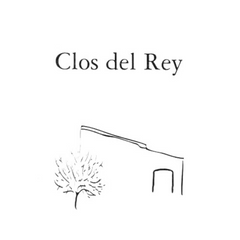 In the foothills of the Pyrénées Mountains, not far from the Mediterranean sea, Clos del Rey is situated in the high altitude hills over the tiny village of Maury. The estate has been owned and farmed by the Montagne family for generations. The vineyard itself is nestled among a protected area of garrigues (rosemary and thyme). The vines of up to 120 years old are allowed to grow natural and untrained, in the old-fashioned way, known as the goblet or bush style. However, it is what lies beneath the vineyard that lends much of the character and complexity found in their wines. Julien Montagne makes complex wines that truly represent his vineyards and his Catalan roots--you can almost smell the sun in the glass.
In the foothills of the Pyrénées Mountains, not far from the Mediterranean sea, Clos del Rey is situated in the high altitude hills over the tiny village of Maury. The estate has been owned and farmed by the Montagne family for generations. The vineyard itself is nestled among a protected area of garrigues (rosemary and thyme). The vines of up to 120 years old are allowed to grow natural and untrained, in the old-fashioned way, known as the goblet or bush style. However, it is what lies beneath the vineyard that lends much of the character and complexity found in their wines. Julien Montagne makes complex wines that truly represent his vineyards and his Catalan roots--you can almost smell the sun in the glass.
Press Reviews
Wine Align
91 points - John Szabo
An old vines cuvée of grenache, carignan and syrah from the stony, schisty soils of Maury, historically reserved for fortified wine production in the style of port, this Maury 'Sec' is a concentrated and aromatic, flavourful wine, with a liquor-like essence of blackberry and blueberry fruit, sweet and resinous wild herbs, scorched earth and licorice, and more in a highly satisfying and bold ensemble. Tannins are abundant but coated and softened by high fruit extract, while acids are low but adequate to balance the big ensemble. Great length. Immensely satisfying at the price; drink or hold another 4-6 years I suspect without concern. Tasted September 2022.
90 points - Megha Jandhyala
This is a rich, ripe blend from Maury Sec, an appellation in the Agly Valley in Roussillon that was authorized for the production of dry red wines in 2011. The nose is inviting and appealing, with notes of cherry compôte, black raspberries, garrigue, and a subtle mineral aroma that reminds me of wet cement. It is medium-bodied, with grainy, drying tannins and balanced acids. I really like the lush fruit on the mid-palate that recede gracefully, leaving a subtle bitterness and warmth in their wake. Tasted September 2022.
90 points - David Lawrason
The village of Maury is better known for its sweet 'vins doux naturel'. This dry red based on grenache, carignan and syrah shows the energy, or a certain internal combustion, I associate with the carignan grape. The nose is quite lifted with red fruit (raspberry, plum) some spice and minerality. It is medium-full bodied, sour-edged and firmly tannic with some heat. Quite peppery and meaty (charcuterie) on the finish. The length is excellent. Tasted Sept 2022
90 points - Sarah d'Amato
From a relatively new appellation in the southwestern region of Roussillon designated in 2011 to allow producers to craft dry reds in addition to the more famous Vin Doux of Maury. In the midst of all the sweetness of the region, Clos del Rey makes only dry wines. This plush incarnation features flavours of liquored black cherry, a chalky minerality and tender tannins. Ripe but with a lick of minerality that helps to provide balance along with a welcome degree of bitterness. Some bitterness helps curb the perception of alcohol too. An arresting yet youthfully broody wine. Tasted September 2022.
- Red Wine
- Nerello Cappuccio, Nerello Mascalese
- Sustainable, Volcanic
- Dry
- Medium Bodied
- 750ml
- 14.5% alc./vol
About the Winery
Azienda Agricola Tornatore
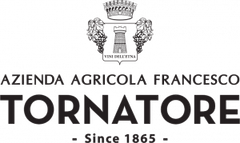
Out of a Sicilian family heritage that traces back to the 17th century, the Tornatore’s Mount Etna wine ventures began in 1865. Today the family’s operations are headed by Giuseppe Tornatore, a businessman whose expertise led to the acquisition of some of the region’s finest north-facing vineyards in the early 2000’s. That heritage and the Tornatore’s profound respect and understanding of the land is showcased in wines that capture the essence of Etna, deftly balancing concentrated flavors, complexity, freshness and refinement.
The company lies in the northern side of Mount Etna, the highest active volcano in Europe. The soils have volcanic origin and were created through the disintegration of lava, ash and stones from previous volcanic eruptions. The climate on the northern side of the Etna is characterized by mild temperatures, and more rain fall reflecting the influence of the Volcano. The combination of soil, climate and the skill of the winemakers, have made the northern slope of Etna an ideal area for the production of high-quality wines. “Our vineyards and our winery are only a few kilometers from our family home. Our entire family is rooted there. We have the greatest respect for this region, and we believe we have a responsibility to be stewards of Etna and to reflect its distinct character in our wines.” - Giuseppe Tornatore
Press Reviews
Wine Enthusiast
93 points - Editor's Choice (2017)
Aromas of red berry, rose, thyme and a whiff of camphor shape the fragrant nose. Sleek and graceful, the lithe, savory palate delivers juicy strawberry, crushed raspberry, Mediterranean herbs and white pepper framed in glossy tannins and fresh acidity. A mineral note evoking smoky flint lingers on the finish.
James Suckling
92 points (2017)
Lots of red plums here with glazed cherries and lemons. Medium body, fine and silky tannins and a refined finish. Drink now.
Vinous
91 points (2017)
Luminous red. Pretty floral and mineral notes complement pure sour red cherry, flinty herbs and spicy blueberry aromas and flavors. Bright and juicy, with a light to medium-weight frame, with a clean, crisp presence on the long fresh finish. A lovely red that goes down like water.
- Red Wine
- Grenache, Mourvèdre / Monastrell, Samso / Carignan, Syrah
- Sustainable, Vegan-Friendly
- Dry
- Medium Bodied
- 750ml
- 14.5% alc./vol
About the Winery
Domaine Andre Aubert
At the very heart of the Rhône Valley, at the northerly tip of the Southern Rhône, lie the vineyards of Grignan-Les-Adhémar. The chances are you haven’t heard the name before, few people have, but the wines are worth seeking out. It’s not a new wine region – vines have been planted here since around 500BC but it is a new name (formerly known as Côteaux-du-Tricastin). Domaine André Aubert, has been formed over decades and today comprises of more than 280 hectares spread from north to south of the prestigious Southern Rhone Valley on the appellations Côtes du Rhône, Côtes du Rhône villages, Visan, and Grignan-les-Adhémar.
Press Reviews
Wine Align
90 points - David Lawrason
This is new appellation (formerly Coteaux de Triscatin) is the northernmost in the southern Rhone. It uses the typical southern Rhone varieties, but none can be more than 80% of the blend. This is a quite elegant, well structured, mid-weight red with some stony minerality, lifted pepper and savoury notes. Not as opulently fruity and rich as many peers, yet very tidy and balanced. The length is very good to excellent. Tasted March 2022
- Red Wine
- Nebbiolo
- Organic, Vegan-Friendly
- Dry
- 750ml
- 14% alc./vol
About the Winery
Réva
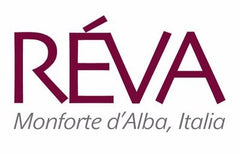
Réva is a winery based in Monforte D’Alba, within the Langhe area, in Piedmont, west northern Italy. Its aim is to bring the most brilliant young people of the area together, entrusting them with the task of expressing themselves in the most creative and professional way possible. This is Réva’s Wave, a dynamic team that represents the new Langhe generation, in constant communication with tradition, without the fear of reinterpreting it.
Today the vineyard sites which spread over 4 villages, Monforte D’Alba, Serralunga D’Alba, Novello and Barolo are all managed directly with the entire agronomic work done manually. Strong sustainable vineyards conduction, certified organic, they believe that their biggest challenge is not inventing anything but just define and express the beauty of the land where they live.
Behind every glass of wine there is an expression, expression of terroir, varietal, the varietal is for them everything, indigenous, they speak of the land and, last but not least, passion for what they do. Simply as that.
Press Reviews
Wine Align
92 points - Michael Godel
Not just amazing but actual, verifiable and absolute truth spoken by way of transparent and clemently honest nebbiolo. Reddest of the cherry red varietal wines, not Barolo because it’s almost too perfectly what it purports to be, without aggression, grip or grandeur. If anyone should find austerity in the tannins or any part of this nebbiolo then something is amiss. For pure drinking pleasure with the grape’s natural acidity in full tact and attack, look no further than this rosy beauty by Réva. Drink 2022-2025. Tasted May 2022.
- Red Wine
- Merlot
- Natural, Sustainable, Vegan-Friendly
- Dry
- Medium Bodied
- 750ml
About the Winery
Grains d'Estuaire
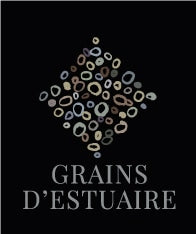
Julien Bonneau, (Château Haut Grelot in the Blayais), and his friend Alexandre Lavigne, restaurateur in Saint-Palais-sur-Mer, created in 2014 a range of wines, Grains d'Estuaire, from 'a 10 ha vineyard located in Saint-Bonnet-sur-Gironde, in the south of Charente-Maritime.
- Red Wine
- Listán Negro
- Sustainable, Vegan-Friendly, Volcanic
- Dry
- Medium Bodied
- 750ml
- 13.5% alc./vol
About the Winery
Viñátigo

Juan Jesús is a proud native of Tenerife and the fourth generation of growers. During the thirty years that he's overseen Bodegas Viñátigo, he has considerably increased its holdings, planting varieties that he and his team recuperated from near extinction.
Driven by passion and love for his homeland, Juan decided to revive and work to save the native grape varieties that were brought to the Canary Islands by the conquers back in the 15th century and that had survived on the islands for centuries. He is a hero of contemporary Canarian viticulture. The wealth of knowledge that his work has created has helped underpin the significant expansion of wine styles that are now available throughout the archipelago, and his wines have achieved a calibre of class that many doubted the Canaries would ever produce again. (The Epic Wines of the Canary Islands, written by Santo Bains).
Press Reviews
Wine Align
91 points - David Lawrason
From pre-phylloxera vines grown at high altitude in volcanic soils, this is a mid-weight, quite smooth red with a generous nose that reminded me of smoke and tar, with wild chokecherry, pomegranate fruit and herbs. Flavours are a bit unusual and sour-edged yet the texture and tension are smooth and appealing. Tannins are quite mild; the length is excellent. Tasted December 2020.
91 points - Michael Godel
The volcanic midlands of Tenerife’s northwest section is THE place on the Canary Islands for growing and producing the highest quality of listán negro. The fourth and fifth generations of Juan Jesús’ family are the custodians of these pre-phylloxera vines at 500-1000m and the wines they gift. Just a kiss of oak does little to adulterate the precocious sentimentality and unknowable delight for a wine that you warm up to without knowing how or why. By now and with the 2019 vintage this unique red has come into its own at a perfect knife’s edge volatility and discreet if sumptuous behaviour. A must try and twice, each year for the next three to six. Drink 2020-2025. Tasted December 2020.
- Red Wine
- Malbec
- Dry
- Full Bodied
- 750ml
- 12.5% alc./vol
About the Winery
Lionel Osmin & Cie
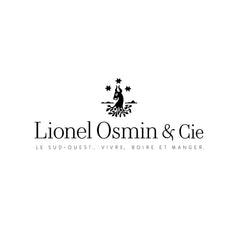
Lionel Osmin & Cie started out with just a group of friends with the same keen passion, with the same love for wines from the South West. Then they had an idea to achieve what nobody had ever done before: to create a quality wine-broking house based on South Western wines following the example of other regions such as Burgundy or the Rhône.
With that founding principle, Lionel Osmin & Co was therefore created under the leadership of Lionel boasting the discovery of the unique wines and vineyards of this region. From Jurançon to Cahors, from Gaillac to Bergerac, passing through Marcillac, Lionel Osmin & Co has become the sole transversal signature of the wines from the South West and their vineyards whose secrets which are yet to be discovered!
The result is a range of wines whose characteristics are faithful to the region and which are made to share the joy of discovering the vines and wines that are enjoyed and loved.
- Red Wine
- Pinot Noir
- Sustainable, Vegan-Friendly
- Dry
- Light Bodied
- 750ml
- 12.60% alc./vol
About the Winery
The Farm

“The Farm” is a 10-acre vineyard in Niagara’s Twenty Mile Bench, planted to Pinot Noir. The Neudorf vineyard was originally planted with Pinot Noir in 2000 for Le Clos Jordanne and aptly named “La Petite Colline”, meaning “little hill”, a nod to the gentle slopes that permeate the plot.
The property is rooted in traditions of gathering family & friends, and where Peter and Dora Neudorf call home .
The cellar door opens once a year for guests to taste new releases, and enjoy live music and local food.
- Red Wine
- Cinsault, Grenache, Syrah
- Organic, Vegan-Friendly
- Dry
- Full Bodied
- 750ml
- 14.5% alc./vol
About the Winery
Château de Montfaucon

Just across the Rhone river from the beautiful vineyards of Chateauneuf-du-Pape, the Lirac appellation extends itself on the low hills alongside the river. The history of Château de Montfaucon dates back to the 11th century when the castle's first tower was built. The castle's role in history was strategic; the Rhône River was the border between the French Kingdom and the Holy Roman German Empire. Montfaucon was one of many castles and fortresses along the Rhône River constructed to guard the border.
Rodolphe de Pins took over the family estate of Montfaucon in 1995 and subsequently rebuilt the winery and began practicing sustainable agriculture. He honed his winemaking skills in Barossa at Henschke and Vieux Telegraphe in Châteauneuf du Pape before returning to Lirac, so needless to say, his familiarity with the local varieties is well established.
- Red Wine
- Cabernet Franc, Merlot
- Dry
- 750ml
- 13.50% alc./vol
About the Winery
Château du Moulin Noir
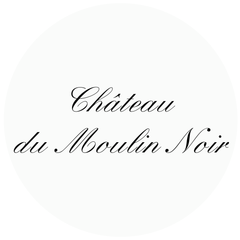
This beautiful right-bank Bordeaux estate consistently produces high-value, elegant and classic Merlot dominant wines and is considered one of the most famous Château of this appellation. Located in Montagne-Saint-Emilion, Château Moulin Noir consists of seven hectares of vineyards on clay and limestone soils.
This château owes its name to a family feuddating back to the Middle Ages. Two brothers were arguing about their father’s legacy with the youngest brother being incredibly jealous that everything went to the elder. He was so jealous that he burnt the château to the ground - Moulin Noir translates to “blackened Mill”.
Press Reviews
Wine Align
92 points - David Lawrason
This great vintage continues to show-off. This very much alive, elegant and intense with well proportioned and integrated aromas of vibrant raspberry fruit, tobacco, cedar, graphite and some maturing earthiness. I like the energy and vibrancy, with firm tannin still, and excellent length. Tasted March 2023
92 points - Michael Godel
Tasting this after the very mature 2012 makes this 2010 seem like a young pup in comparison. So youthful in fact there persists a spring in its step and freshness on the fruit dominant aromatics. No haste to the secondary here in fact that stage is barely upon this Lussac Saint-Émilion Right Bank wine. Five dollars cheaper as well so much more of a value and great deal for restaurant lists, but also those who are looking for immediate consumption in well-aged Bordeaux. This is where where you want it for either of those reasons. Some sweet and sour caramel and seasoned burnt ends are beefy and delicious at the finish. Drink 2023-2025. Tasted March 2023.
92 points - Sara d'Amato
For this 2010 blend, grapes are sourced from a satellite region of Bordeaux known as Lussac-Saint-Emilion even though the estate is located in neighbouring Montagne-Saint Emilion. Lussac-Saint-Emilion is the northernmost of the satellites and is slightly higher and more hilly than the others. The name of the estate means "blackened mill", and is in reference to two feuding brothers of the Middle Ages one of which burned the Château to the ground. From an excellent vintage, this 13-year-old wine has held up remarkably well and is a delight to drink at present, salty and a touch ferrous with dried wild herbs, leather and macerated cherry on the palate. The tannins have been abated over time adding a velvety volume to the palate. Excellent length. Tasted April 2023.
- Red Wine
- Dolcetto
- Biodynamic, Natural, Organic, Vegan-Friendly
- Dry
- Medium Bodied
- 750ml
- 13% alc./vol
About the Winery
Punset

While the vineyards that form Punset have been farmed by the Marcarino family for generations, it is truly thanks to Marina and her incredible energy that the estate is how it is nowadays. In the 1980s, she decided to pursue organic farming – a demanding choice that was rewarded by becoming the first estate to receive the organic certification in Italy. Her passion for the soil and the environment led her to embrace biodynamics and the agronomic philosophy of Manasobu Fukuoka. From one of the healthiest vineyards in Italy, Marina crafts wines that brim with life, energy, and pure terroir.
Known for the very first certified organic Barbaresco of Italy, Marina continues to show the world that you can preserve tradition and think of the future simultaneously.
- Red Wine
- Tempranillo
- Dry
- Residual Sugar: 1.2 g/l
- 750ml
- 14% alc./vol
About the Winery
Bideona
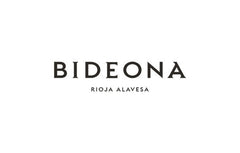
Bideona owns or manages over 300 parcels of extraordinary vines in villages throughout the Rioja Alavesa, the coolest, smallest and most Atlantic sub-zone of Spain’s most famous wine region.
The vineyards of the Rioja Alavesa are defined by parcels of old bush vines planted on terraces or hillside slopes with a high percentage of limestone. Located in the foothills of the Sierra Cantabria, Bideona’s vines have an average age of 50 years and many were planted in the 1920s, 30s and 40s, before high-yielding clones became available.
Bideona puts the focus firmly on terroir by making each wine in its Vino de Pueblo range as a field blend of Tempranillo and other native varieties from plots in an individual village. Each is named with an acronym – L3Z4 for Leza, L4GD4 for Laguardia, S4MG0 for Samaniego and V1BN4 for Villabuena – owing to DOCa Rioja regulations that only allow village names to be marked if both the winery and the vineyard are in the same location.
“Bideona’s reason for existence is to make wines that show the personality of the Rioja Alavesa and its historic wine villages” states company co-founder and director, Andreas Kubach MW. “We have access to a wealth of diverse plant material in our parcels of old vines, which we believe contributes to the complexity of the wines as well as the differences between villages.”
Press Reviews
Wine Align
92 points - Michael Godel
Nine months has done nothing to diminish the energy and swagger of Las Parcelas which brings together fruit from Bideona’s four distinct terroirs each labeled under a viñedos singulares distinction. Sure this may lack the depth of those unique expressions but it does gather them as one layered tempranillo and best of all the 2021 vintage is presented in high esteem. Much anticipation for what else is still to come. Last tasted December 2024. Las Parcelas takes winemaker Tao Platon’s Rioja work to another level because fruit remains at the core in the most pure and clear way. There is little to no distraction by wood or other winemaking work and terroir speaks about as prominently as it can in a wine at this price level. Perfumed, silken, moderate of style, easy to drink and finely tannic without austerity or unnecessary grip. Fine in so many ways. Drink 2025-2030. Tasted March 2024.
92 points - John Szabo, MS
Bideona draws from over 300, mostly tiny parcels in Rioja Alavesa, the highest sub- region in the denomination, aiming to capture the perfume and freshness of high-elevation tempranillo and other locals. Las Parcelas, is a blend of parcels, considered a 'regional' wine in the portfolio's hierarchy, below single vineyard and single village wines, but's it's a beauty on every level, especially having moved past the reductive stage noted in my previous review. I love the delicate fragrance offered straight off the top, replete with fresh red fruit and an herbal-floral twist, almost peppery, while the palate delivers crunchy limestone acids and silky-firm tannins lending a sandy texture. I enjoy the freshness of fruit now, though I suspect tannins will soften nicely over the next year or two if you're seeking more silk. Tasted December 2024. Previous: Bideona's Las Parcelas Rioja hails from the foothills of the Sierra Cantabria in the Rioja Alavesa, the highest elevation vineyards in the denomination. There's a slightly reductive edge to this young, predominantly tempranillo- based red, with a mix of both fresh red and also black fruit, with notable floral components and a notable lack of obvious wood influence, you could say a more contemporary style. The palate is plush and nicely concentrated without excess, deeply fruit with lasting flavours. It makes a great counterpart to Bideona's more traditional Artelan Reserva bottling at a similar price, two styles, two very good wines. Drink this one from about 2026-2032. Tasted March 2024.
- Red Wine
- Tempranillo
- Sustainable
- Dry
- Residual Sugar: 1.1 g/l
- 750ml
- 14.3% alc./vol
About the Winery
Bideona

Bideona owns or manages over 300 parcels of extraordinary vines in villages throughout the Rioja Alavesa, the coolest, smallest and most Atlantic sub-zone of Spain’s most famous wine region.
The vineyards of the Rioja Alavesa are defined by parcels of old bush vines planted on terraces or hillside slopes with a high percentage of limestone. Located in the foothills of the Sierra Cantabria, Bideona’s vines have an average age of 50 years and many were planted in the 1920s, 30s and 40s, before high-yielding clones became available.
Bideona puts the focus firmly on terroir by making each wine in its Vino de Pueblo range as a field blend of Tempranillo and other native varieties from plots in an individual village. Each is named with an acronym – L3Z4 for Leza, L4GD4 for Laguardia, S4MG0 for Samaniego and V1BN4 for Villabuena – owing to DOCa Rioja regulations that only allow village names to be marked if both the winery and the vineyard are in the same location.
“Bideona’s reason for existence is to make wines that show the personality of the Rioja Alavesa and its historic wine villages” states company co-founder and director, Andreas Kubach MW. “We have access to a wealth of diverse plant material in our parcels of old vines, which we believe contributes to the complexity of the wines as well as the differences between villages.”
Press Reviews
Wine Align
94 points - John Szabo, MS
One of Bideona's 'single village' wines, in this case Villabuena, this is gorgeous wine, full stop. Hillside vineyards sit around 500 m above sea level, and ripening is later than in Laguardia but earlier than in Leza, a sort of Goldilocks zone for balance, concentration and freshness. Just less than half of the 2020 was aged in 300l barrels (one- quarter new) with the rest in tank, adding to the freshness and preserving the floral nature of 'mountain' tempranillo. I love the silky precision on the palate and the streak of savoury herbs that run through from start to long finish. Acids are perfectly ripe and crunchy, and the perfume lingers on and on. Delicious now, but no rush - hold easily into the '30s. Tasted December 2024.
92 points - Michael Godel
One of of Bodega Bideona's four Vinos de Pueblo (village- designated) series of wines, each with their own acronym. In this case VIBN4 to represent Villabeuna at an elevation in and around 500m. Considered a field blend but with mostly tempranillo and a 50-50 aging style, barrels and tanks for that integrated layering of micro-ox and equalling freshness. A village wine of sleek fruit and authentic flaws, meaning the human eye sorts the grapes, not a machine and character inevitably ensues. Luxe and ripe with a whisper of Villabeuna swarthiness though frescura outworks obscura for a dangerously clean and easy red to knock back. There is some grip, punch and circumstance, so be aware of the sober power of this wine. Will age gracefully for three-plus years. Drink 2024- 2027. Tasted June 2024.
- Red Wine
- Tempranillo
- Sustainable
- Residual Sugar: 1.1 g/l
- 750ml
- 14.3% alc./vol
About the Winery
Bideona

Bideona owns or manages over 300 parcels of extraordinary vines in villages throughout the Rioja Alavesa, the coolest, smallest and most Atlantic sub-zone of Spain’s most famous wine region.
The vineyards of the Rioja Alavesa are defined by parcels of old bush vines planted on terraces or hillside slopes with a high percentage of limestone. Located in the foothills of the Sierra Cantabria, Bideona’s vines have an average age of 50 years and many were planted in the 1920s, 30s and 40s, before high-yielding clones became available.
Bideona puts the focus firmly on terroir by making each wine in its Vino de Pueblo range as a field blend of Tempranillo and other native varieties from plots in an individual village. Each is named with an acronym – L3Z4 for Leza, L4GD4 for Laguardia, S4MG0 for Samaniego and V1BN4 for Villabuena – owing to DOCa Rioja regulations that only allow village names to be marked if both the winery and the vineyard are in the same location.
“Bideona’s reason for existence is to make wines that show the personality of the Rioja Alavesa and its historic wine villages” states company co-founder and director, Andreas Kubach MW. “We have access to a wealth of diverse plant material in our parcels of old vines, which we believe contributes to the complexity of the wines as well as the differences between villages.”
Press Reviews
Wine Align
93 points - Michael Godel
L4GD4, one of four viñedos singulares or singular landscape explorations from Bideona from a range of tempranillo also known as Viños de Pueblo. This old vines example is Laguardia, literally “the guard” because of its defence position for what is a most endearing village. Ripens early, followed by that of the others in the line - Samaniego, Villabuena and Leza. The 2020 feels like a wine of more substance and depth than that of 2019 though without the same level of intensity. That said there is a seriousness, at times a brooding character and in the end a profundity that must be recognized. Has already done some travelling and maturing but there should be no reason to think it won’t drink well for another six or seven years. Drink 2024-2029. Tasted December 2024.
- Red Wine
- Carignan
- Natural
- Dry
- 750ml
About the Winery
Domaine Frédéric Brouca

Frédéric grew up in Normandy and met his Canadian wife Elaine at university in Lille, Northern France. They live a nomadic lifestyle (Canada, India, Singapore and USA) though Frédéric spends about half of his time in Faugères. Since early age, Frédéric had a calling for farming and the fierce desire to become a winegrower. After completing a Masters Degree in Finance in 2001, Frédéric went back to college for a Sommelier diploma and started his career as a Burgundy wine broker.
In late 2012, Frédéric and Elaine were fortunate to take over 25 acres of old vines in Faugères, organically farmed for twenty years and deeply rooted in schist soils.
2013 was the inaugural vintage for Domaine Frédéric Brouca. In his modest winery in the village of Laurens, Frédéric is creating a new vision for Faugères wines; fresh, vibrant and made without artifice. Nothing revolutionary, simply returning to our grandparent's ideology of farming and winemaking to craft 'Vins Vivants'. The Faugères Appellation is in the heart of Languedoc in the Hérault department. Here, winemaking dates back to the Greek times and was developed during the Roman Era. It wasn't until the early 1900's, however, that the wines became more widely known for its unique schist soils and moderate Mediterranean climate. These villages are heavily reliant on wine as an important part of their culture and economy.
The area is stunning with mountain views and close proximity to the Mediterranean Sea (20 miles / 30 kms). Faugères has a long history of responsible farming. It boasts the highest percentage of organic vineyards for any AOC in all of France with almost 50% of farmers making the choice.
Press Reviews
Wine Align
91 points - Michael Godel
Debut vintage of Frédéric Brouca’s Clair Des Champs, literally “clear fields,” a light red (not a Rosé) that the Faugères winemaker chooses to categorize as "Rouge Clair.” A new genre of wine perhaps, bright and light made by co-fermenting direct press mourvèdre on terret blanc and carignan. May not talk about or incite a revolution but it is clever and insightful, so there’s definitely that. It’s clear, crisp and clean, glou-glou as they say but also taut and beautiful. There is love involved, obviously not a political thing but important as a self-titled debut label. “Talking about a revolution? It sounds like a whisper.” Drink 2024-2026. Tasted December 2024.
90 points - John Szabo, MS
A blend of mourvèdre, cinsault and terret blanc made in a very pale red (or deep rosé) 'clairet' style, Brouca's 23 Clair des Champs is a clean, sapid and savoury wine with a very particular set of flavours, beyond any easy analogy. Ripe raspberry-type fruit meets a sort of meaty, amino acid-rich taste profile, while tannins are light and grainy and acids comfortably bright. With just 12% alcohol there's also a refreshing aspect to it. It's a wine to drink lightly chilled but not cold, over the next year or two. I appreciate the integrity and craftsmanship here. Tasted December 2024.
90 points - Sara d'Amato
A salty, clean and lively claret-style red made from a schist-grown blend, largely from Faugères, that includes mourvèdre, cinsault, and the more rare terret blanc. Dry and mineral with notes of puréed red fruit, cranberry, and thyme. I can easily see this at the holiday table. Light in alcohol at 12%, certified organic and with a very fine tannic presence. Highly accessible, ready to drink and a great deal of fun. Tasted December 2024.
- Red Wine
- Carignan, Grenache, Syrah
- Dry
- 750ml
About the Winery
Domaine Frédéric Brouca

Frédéric grew up in Normandy and met his Canadian wife Elaine at university in Lille, Northern France. They live a nomadic lifestyle (Canada, India, Singapore and USA) though Frédéric spends about half of his time in Faugères. Since early age, Frédéric had a calling for farming and the fierce desire to become a winegrower. After completing a Masters Degree in Finance in 2001, Frédéric went back to college for a Sommelier diploma and started his career as a Burgundy wine broker.
In late 2012, Frédéric and Elaine were fortunate to take over 25 acres of old vines in Faugères, organically farmed for twenty years and deeply rooted in schist soils.
2013 was the inaugural vintage for Domaine Frédéric Brouca. In his modest winery in the village of Laurens, Frédéric is creating a new vision for Faugères wines; fresh, vibrant and made without artifice. Nothing revolutionary, simply returning to our grandparent's ideology of farming and winemaking to craft 'Vins Vivants'. The Faugères Appellation is in the heart of Languedoc in the Hérault department. Here, winemaking dates back to the Greek times and was developed during the Roman Era. It wasn't until the early 1900's, however, that the wines became more widely known for its unique schist soils and moderate Mediterranean climate. These villages are heavily reliant on wine as an important part of their culture and economy.
The area is stunning with mountain views and close proximity to the Mediterranean Sea (20 miles / 30 kms). Faugères has a long history of responsible farming. It boasts the highest percentage of organic vineyards for any AOC in all of France with almost 50% of farmers making the choice.
Press Reviews
Wine Align
93 points - Michael Godel
Côte de Glou just has to be a fantasy name, a play of words for a wine that you just want to drink, glug-glug, glou-glou but imagined as from a place that happens to be a hill, slope or coast. This glow is a mix of grenache, syrah and carignan off of hilly Faugères slopes of schist. This is the purest, fruitiest and least swarthy of Brouca’s wines and also the one out of which tannins take the sharpest bite. The least confounding and different of his organic and low-sulphites work, the wine that reeks of purple fruit and florals, of violets and roses, of berries and mineral salts. Tastes this way too, piquant and crunchy, piquing palate and interest. Most representative of Faugères and something for everyone in a glass. Drink 2024-2028. Tasted January 2023.
92 points - David Lawrason
This is an organically grown blend of grenache, syrah and carignan grown in the Faugeres region of Languedoc. It is deeply coloured, and a bit cloudy (unfiltered). The nose shows very ripe blackberry, some meatiness, dried herbs and anise. It is medium-full bodied, highly energized, juicy and firm with considerable tannic grit. Excellent focus and length with a rustic/farmy ambiance. Bordering on a natural wine expression. The complexity and length are excellent indeed. Tasted January 2024
92 points - Sara d'Amato
Schist-grown, 40-year-old grenache, syrah, and carignan from the slopes of Faugères make up Brouca's Côte de Glou assemblage. Supple enough for immediate drinking largely due to the 2+ years of maturation in stainless steel and neutral French oak. A characterful natural, organic, and vegan-friendly wine with no added sulphur. Salty, bright, and clean with notable complexity on the palate that features wet leaves, cran-cherry, plum compote, gentle fruit spice and even a hint of cola. Widely appealing with very good length. Best now to 2028. Tasted January 2024.
91 points -
Brouca's "Côte de Glou" ("slope of glug"?) is a blend of grenache, syrah and carignan from La Serre plateau in the Languedoc appellation of Faugères made 'naturally' (organic farming, no additives). It pours a deep red-ruby and offers a range of wild, earthy, leathery, waxy aromas in the natural wine genre, not to say funky, but a bit wild and oxidative. Fruit is fresh, both dark and red, sitting on a tight frame of gritty tannins and above average acids. I like the saliva-inducing quality, the savoury, umami-rich aspect. It's tough to anticipate the evolution of such wines given the little protection (sulfites) they contain, but I'd suggest another year or two in the cellar for additional complexity and textural polishing. Tasted January 2024.
- Red Wine
- Cabernet Sauvignon
- Sustainable
- Dry
- Residual Sugar: 3.00 g/l
- Full Bodied
- 750ml
- 14.50% alc./vol
About the Winery
Sister's Run

Sister’s Run is serious fun. Their talented young winemaker Elena wears steel cap work boots every day of course, but carries a pair of high heels in back of the ute, only for emergencies, like last minute invitations to accept trophies at gala wine show dinners and the like.
Returning from a ‘knees-up’ at midnight, mid vintage, she managed to kick off one high heel and slip back into a boot’ just as the cellar crew cried out, ‘Run Sister Run’; and exactly then their winemaker and label took flight!
The stiletto and boot are Sister’s Run; an independently owned and operated winery with a fierce commitment to making the best wines they can from family vineyards. They don’t take ourselves as seriously as we take our wines, but agree with Elena, all you need to know about wine is the five ‘V’s and remember the best wine is the wine you like.
Press Reviews
WineAlign
90pts - David Lawrason
This is great value in delicious, energetic and complex cabernet. The concentration, for the price, is remarkable and speaks to the mid-90s scores displayed on the bottle. It is charged with blackcurrant, blueberry, menthol/eucalyptus and peppery spice. It is full bodied, fairly dense, a touch sweet and warm, finishing with iodine and fresh herbs. The length is excellent.





























